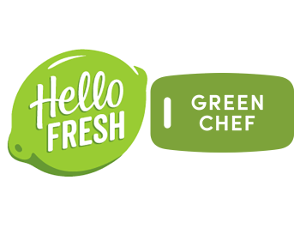German-based meal kit company Hello Fresh announced that its revenue was up 90% in the US, surpassing first place contender Blue Apron. Hello Fresh also recently acquired Boulder-based meal kit service Green Chef, part of its plan to expand into specialty cuisine.
The meal kit industry has been going through a rough patch recently, especially Blue Apron, once a startup darling in the space. Last year, Amazon acquired grocery chain Whole Foods and announced its own entry into the meal kit service market, disrupting Blue Apron’s IPO. Investors who were once fans have since backed down, and the stock has struggled since it debuted last summer.
Blue Apron has also struggled with its new fulfillment center in New Jersey, as customer complaints rolled in about late deliveries and incorrect orders. The company pulled back on marketing the last few months, focusing on fixing these issues and hoping stock prices would rise.
Hello Fresh seized an opportunity, and in 2018, has made a huge marketing push in the US, and it looks like it paid off. While Blue Apron’s customer base fell 28% to 746,000, Hello Fresh more than doubled its U.S. customers to 890,000, according to Supermarket News.
On top of that, Hello Fresh also launched its IPO in the Frankfurt Stock Exchange a few months after Blue Apron debuted its public offering in the US. As Blue Apron stock has plummeted over the months, Hello Fresh shares have grown 40%.
“2017 marks the most successful year for our business to date. Not only did we successfully list our company on the stock market but we also significantly improved all our key metrics,” said Dominik Richter, CEO and co-founder of HelloFresh, in a statement.
The acquisition of Green Chef is an interesting move for the company. Green Chef caters to those with special dietary needs, including Paleo, vegan, and Keto meals, addressing a growing need among consumers who want more choices in their meal kit services. Research firm Nielson reported that 36% of consumers who have purchased meal kits in the past said that their ability to choose a meal kit according to specific dietary needs was “extremely important.”
Both Blue Apron and Hello Fresh have struggled to retain customers, however. They use a subscription model, with 2-3 meals delivered on a weekly basis. Many people interested in meal kits have shied away, simply because they didn’t want to commit.
Interestingly, Blue Apron is considering expanding their services to distribution in retail stores, something Hello Fresh has tried in Europe. Also of note: grocery chains like Rouses and ShopRite have begun offering their own meal kits at a lower price. Walmart has also announced its plans to roll out its own branded meal kit service in 2,000 store locations by the end of 2018.
The meal kit industry is still growing, and competitors and big grocers alike are betting on what will appeal to consumers going forward, whether it’s more choice, cost, or convenience.
